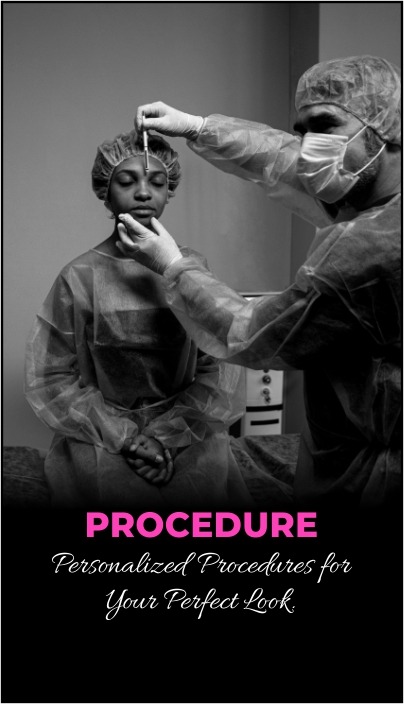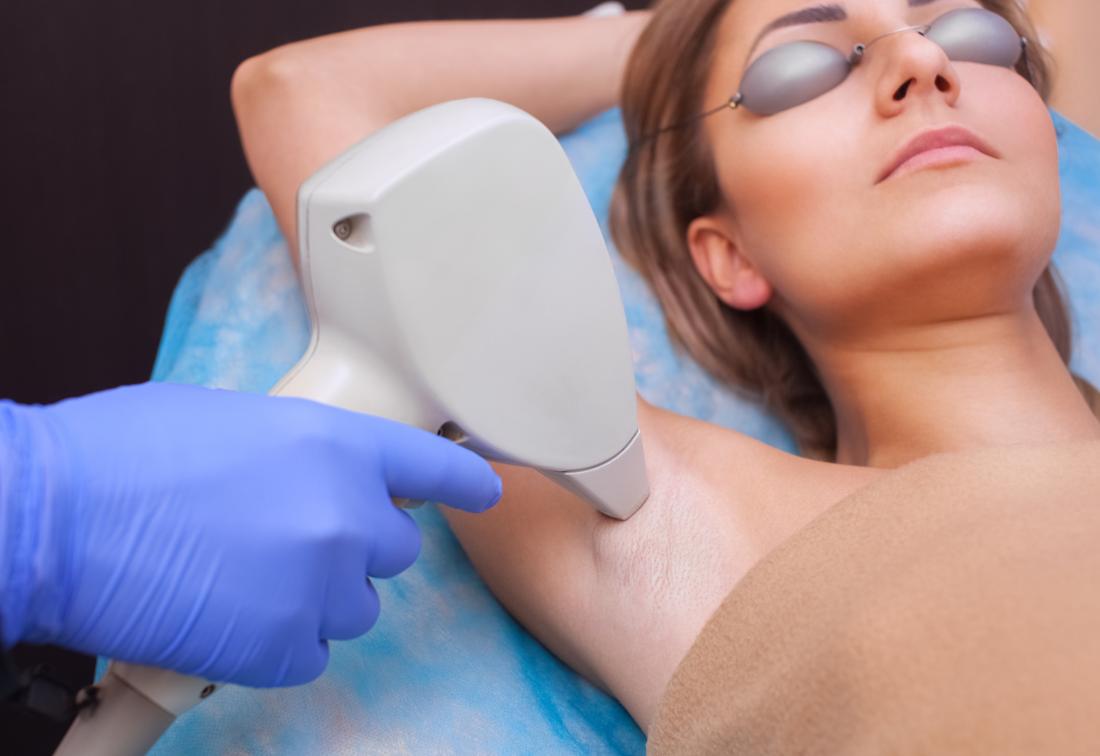

Laser hair removal is a medical procedure that uses a concentrated beam of light (laser) to remove unwanted hair.
During laser hair removal, a laser emits light absorbed by the pigment (melanin) in the hair. This light energy is converted to heat, damaging the hair follicles, inhibiting or delaying future hair growth.
Although effective in delaying hair growth, laser hair removal typically requires multiple treatments and maintenance sessions.


Laser hair removal is used to reduce unwanted hair on areas like the legs, armpits, upper lip, chin, and bikini line. However, it can be used nearly anywhere, except on the eyelid or areas with tattoos.
The procedure works best for individuals with dark hair and light skin, although new laser technologies have made it possible for people with darker skin tones to benefit as well.
The most common side effects of laser hair removal include:
Rarely, laser hair removal may cause blistering, crusting, scarring, or excessive hair growth in treated areas.
Before laser hair removal, it’s essential to:
Laser hair removal typically requires two to six treatments. The interval between treatments varies depending on the location of the unwanted hair.
During the procedure, you'll wear protective goggles, and a topical anesthetic may be applied to reduce discomfort.
For areas with rapid hair growth, like the upper lip, treatments may be spaced every 4 to 8 weeks. For slower-growing areas like the back, treatments may occur every 12 to 16 weeks.
The doctor will press a hand-held laser instrument to your skin. A cooling device on the tip of the instrument or a cool gel might be used to protect your skin and lessen the risk of side effects.
When the laser is activated, it passes through your skin to the hair follicles, damaging them to inhibit hair growth. You might feel a warm pinprick and a cold sensation from the cooling device or gel. Small areas, like the upper lip, take minutes, while larger areas, like the back, take longer.
You might experience redness and swelling for a few hours after the procedure. Applying ice to the treated area can help with discomfort, and your doctor might apply a steroid cream if needed.
It's important to avoid sunlight and tanning beds for six weeks or as directed by your doctor. Use broad-spectrum SPF30 sunscreen daily.
Hair won’t fall out immediately but will shed over a few days to weeks. Repeated treatments are necessary due to the hair growth cycle, as laser treatment works best in the new-growth stage.
Most people experience several months or years of hair reduction. However, it’s not permanent, and regrown hair is often finer and lighter. Maintenance treatments may be needed for long-term results.
Home laser hair removal devices are available but may only provide modest results. They are considered cosmetic by the FDA and lack large-scale studies for safety and efficacy. Always follow the instructions to avoid injury, especially to the eyes.
At Covai Cosmetic Surgery, we offer safe, fast, effective, and comfortable laser hair removal treatments. Using top-of-the-line equipment, including Zikra multifunctional technology and Zimmer cold air therapy, we reduce pain during treatments. Areas include face, legs, bikini, back, and more.
We now offer a lifetime guarantee* for patients who receive 12 laser treatments. Request a consultation for a personalized treatment plan.
Laser hair removal usually requires six to eight treatments to a targeted area. The interval between treatments will vary depending on the hair location. On areas where hair grows quickly, such as the upper lip, the treatment might be repeated in four to eight weeks. On areas of slow hair growth, such as the back, the treatment might be every 12 to 16 weeks. Request a consultation to determine what package is best suited to achieve your individual goals, considerations include coarseness of hair, pigmentation, location, and size of the targeted treatment area.
Divided into two 45-minute sessions.
